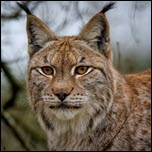HPAI virus exposure in free-ranging bobcats in New York, USA
In a recent study published in the Journal of Wildlife Diseases, researchers conducted an investigation into free-ranging bobcats (Lynx rufus) in New York, USA. The study revealed widespread exposure to avian influenza, documenting instances of bobcats both surviving and succumbing to the highly pathogenic H5N1 strain. The research involved the analysis of serum samples from 16 free-ranging bobcats captured in New York State, indicating that 9 (56%) of these individuals tested positive for antibodies to the Influenza A Virus (IAV), with 4 of those also exhibiting positive antibodies for the H5 and N1 subtypes. The study observed significant variations in the individual responses of bobcats to the virus, including cases in which some bobcats remained healthy despite exposure, while one bobcat (bobcat #11) succumbed to highly pathogenic avian influenza (HPAI) infection.
These findings indicate a considerable risk of HPAI infection in terrestrial carnivores, underscoring the necessity for further research into the role of wild mammals in the epidemiology of avian influenza and the implementation of monitoring efforts to protect wildlife health.












